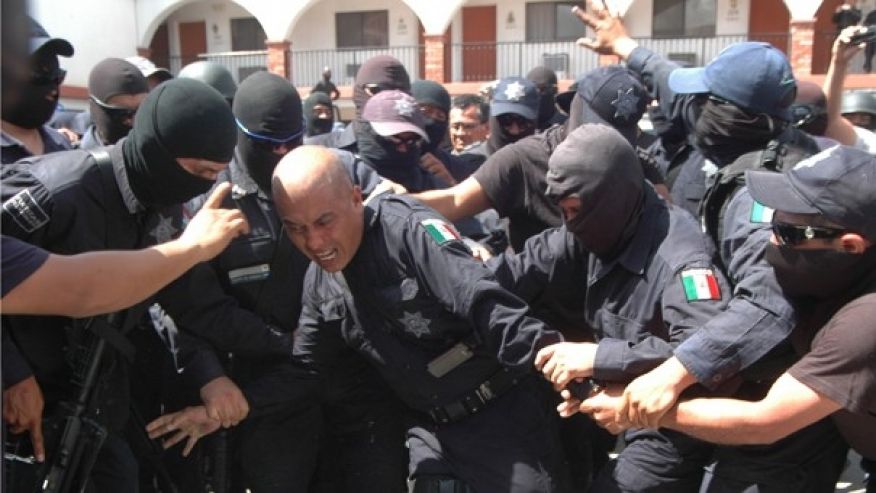AP photo
By
Ricardo Swire
Most Western residents live in liberal democratically elected countries, based on principles of a free market economy. Through backroom deals and secret arrangements some political officials eagerly await kickbacks from nefarious charactersfor under the table favors. Corruption is not a stand-alone internal security challenge, the vice is interrelated with other community enforcement issues.
Political aspirants anticipate the necessaries required to enter office and when/how they are likely to depart. After election the official has trained civil servants to do their bidding. When legislation is approved communities expect implementation will follow. Citizens vote again, sign petitions, protest and publicly complain. Very few reject the political system’s core principles.
Several Western covert/overt military operations were motivated by mindsets of vulnerability. Western political powers felt access to Third World countries’ raw materials and oil supplies were threatened by Communists intrusion. The international economic system shaped globalization and created an environment where corruption flourishes.
Economic motivations are the driving force of international free trade design. Political and security factors shadowed corporate agreements, bribery a main tenant of corruption. Several global corporations tactfully avoid direct association with the practice. Instead ten percent “success fees” are offered to locally contracted agents. The representative is given access to a “slush fund,” used as backup money for unofficial bribery payments.
Trends show payola in France, Germany and the United Kingdom (UK) is coded as legitimate business expenses that qualifies as tax deductions. Corruption’s overall impact on national poverty and its effects on inequality are penned in disparate free trade agreements and structural adjustment policies. Among Caribbean Basin dwellers Mexico is a perfect specimen. The country is a signee on twelve international free trade agreements with forty four countries.
Mexico continuously adhered to World Bank/International Monetary Fund/US Treasury Department imposed structural adjustment policies. Internal security reports show such collaborations are not reflected in programs to correct Mexico’s overcrowded Federal prisons. In thirty-two Mexican states twenty operate congested jails. Colima state penitentiary, constructed to accommodate 876 inmates, houses 3,613.
Nayarit prison incarcerates 2,424 prisoners in a facility designed for 962. Hidalgo, Jalisco, Sonora and Guerrero state jails’ over population surpasses one hundred and fifty percent. Mexico’s 2016 national budget recommends a billion peso reduction, apportioned to Federal prison administration, operations and infrastructure. Funds allocated to jail infrastructure total 336 million pesos. A significant decrease from 2015’s 2.83 billion pesos.
In September 2016 Auditoría Superior de la Federación (ASF) officially requested Mexico’s Attorney General Office to probe 38.5 million pesos, unlawfully diverted from 2014’s Federal penitentiary budget. The concern resembles infrastructural adjustment corruption in action. The missing cash disappeared from Mexico’s Administrative Body for Prevention and Social Rehabilitation or Órgano Administrativo Desconcentrado de Prevención y Readaptación Social (OADPRS), an extension of Secretariat of the Interior (SEGOB).
Expenditure of 1.5 million pesos worth of aircraft flight services, contracted by SEGOB officials with OADPRS money, a piece of the puzzle. The urgency to transport senior Mexican public servants, attending business at Federal prisons located where ground transportation is a challenge, was one noted explanation. Four other flights, costing 20 million pesos, had no provided justification. Additionally, the public contract was awarded without the bid process required by law.



Open and revealing.